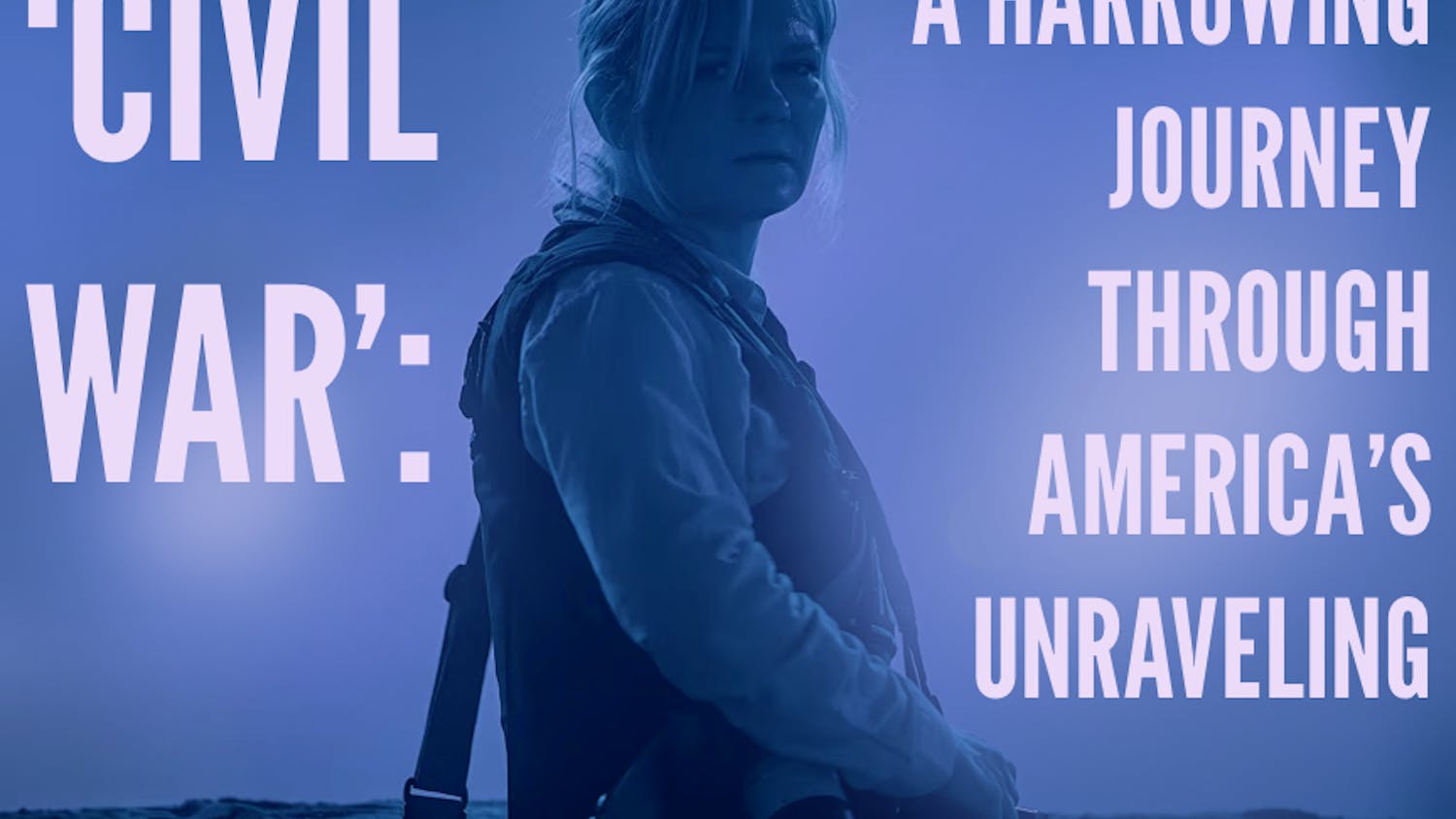
Cue flute music and pan to the Women and Women First storefront.
*Action*
“We have a new batch of books. We should go through and make sure it’s what we want in the store.”
“Okay, great.”
*Pulls out "Hunger Makes Me a Modern Girl" by Carrie Brownstein*
“This has quotes by Miranda July and Kim Gordon on the back cover!”
“Oh grea—wait, that’s a best-seller. Do we want that in here?”
“No, we only want bottom-selling authors.”
Toni and Candice, the feminist bookstore owners created by Carrie Brownstein and Fred Armisen on “Portlandia,” are the ultimate critics. As supreme tastemakers, or taste deprecators, they work to (sometimes) sell tangible goods and extend the purchasing process as far as it can go, perhaps best represented in Toni’s statement to a customer upon his wish to purchase a novel: “We can order that for you. It will be ready for pickup in one year — it has to be written.”
Although the Women and Women First characters are caricatures and they host (decidedly non-sexy) car washes to make rent, the in-store curation and recommendation model is one Brownstein herself reminisces about in her new memoir and discussed during her book tour stop at the Rough Trade record store in London on November 11.
Brownstein’s point aligned with the vinyls on rotation, CD players spinning the store’s monthly “Best Of” selections and lists of employee recommendations.
“Seeking was tactile … record stores were a place to cohere,” Brownstein reminisced amidst posters advertising in-store events, making the statement seem less wistful and more concrete amongst today’s vinyl revival. She mentioned her appreciation for word-of-mouth buzz, which was crucial to her band Sleater-Kinney's success.
Although Sleater-Kinney is largely successful, if more so critically than commercially, I wrongly assumed that this enabled a life of luxury. In an especially striking scene, Sleater-Kinney is named the Best Band in America by Time magazine as they continue to tour in an old van.
“Best Band in America and my back is about to go out again because I’m carrying a sixty-pound amp into a practice space the size of a pantry in which Janet’s aged marmalade cat had sprayed multiple times," Brownstein writes. "It smells like piss and dryer sheets. This is us having ‘made it!’ We never stopped working. Most bands don’t.”
The idea of recognition as a source of validation, or even acceptance through recognition, is explored throughout the book. Brownstein reflects on her failed "Brat Pack" pen-pal attempts and her success in writing soap opera stars.
“The venture soon became less about competing with my peers and more about my own sense of invisibility and need for validation,” she writes.
Brownstein would open up in emotional recounts of her mother’s illness or bullies at school — tales she candidly shared in her letters to daytime stars. It is this hunger for validation, for listeners, that drives the book forward. However, the hunger doesn’t veer towards desperation, as Brownstein eventually came to her own through performance. As a girl who wore cream-colored elasticized waist shorts to a young woman in a backwards J Crew cap at a band audition, she was always striving towards staged success. “I had very little desire to be present, only to be presentational or to pretend,” she writes.
“To court fame, money and press felt dirty, sweaty,” Brownstein writes. “It implied you wanted to be accepted and loved by the mainstream, the same people who had rejected, taunted, and diminished you in high school. Jocks. Cheerleaders. Preppies. Yuppies.”
While not regularly courted by the mainstream media at their onset, Sleater Kinney did receive attention from Eugene-based zines. Cultural zines acted as yesterday’s equivalent to the online regulatory PC police, calling out artists who misconstrued base values and applauding the alternative or politically-inclined. Brownstein admittedly was turned off from music journalism after Spin magazine outed her to her family.
Women and Women First is not how Brownstein wanted her music critiqued: sound first, female-based critique second. As part of the iconic and momentous Olympia, Wash.-based “Riot Grrrl” movement, Sleater-Kinney took on the gender-pushing and glorifying rock scene. Even the word "Grrrl" takes on a gritty, interpretative persona, by leaving out the definitive “i” and stretching out its rough syllabic power.
Brownstein wanted her music to be read as and listened to simply as music, not girl music. The same mentality plays into feminist critiques that blow over the actual contents and quality of the music to focus on muck-raking or cultural comparisons. In the days of "femvertising" and the double feminist stigma, Brownstein's cautions around the marketed girl power of acts like the Spice Girls ring true.
It’s fitting that in one Women and Women First skit, Brownstein’s character states that she has been writing throughout all her past lives: a statement that could provide the solution as to how one person can achieve such enticing creative work in such an array of fields. Brownstein’s writing accessibly arcs through insecurities, family problems and the progression of Olympia rock in an understated, relatable way.
She perfectly summed up her humble approach during the discussion at Rough Trade: “My inarticulate self has light shone on it by other people’s writing, other people’s lyrics.”
Brownstein’s internalization of other bands, experiences and situations as a self-proclaimed “observer” is integral to her writing on “Portlandia” and the reflections in her memoir on Olympia and the Riot Grrrl movement. At the Rough Trade discussion, Brownstein mentioned her role as an articulator of the ineffable. “Modern Girl” serves as her own memoir, separate from the Sleater-Kinney collective.
This structuring leaves Corin Tucker’s life, beyond her relationship with Brownstein, largely unraked. Janet Weiss remains a mystery past descriptions of her drumming.
The book left me satisfied, but not uncomfortably stuffed with opinions and forced take-aways. Brownstein’s minimalistic structure and personal elaborations left me at that wonderfully elusive point where you could comfortably indulge in dessert or leave the restaurant satiated. In my case, a thorough listen and further ingestion of Sleater-Kinney’s semi-sweet record “No Cities To Love” was the perfect finish.
P.S.A. Brownstein is currently binge-watching “Master of None,” Aziz Anzari’s brilliant new Netflix series which Scene fullyendorses. You should follow her lead in doing the same.













